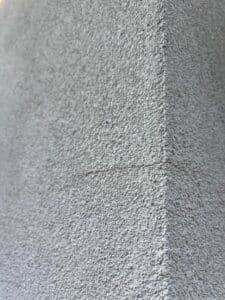The best ways to prevent your house from sinking are to ensure a solid foundation, perform regular inspections, maintain effective drainage, stabilise the soil, and repair regularly. Foundation repair specialists can help you decide on the right approach. Out of all methods, soil stabilisation is particularly crucial to prevent foundation movement that can cause a structure to sink.
In this blog, we’ll expand more on these methods to stop your house from sinking.
How to Prevent Your House From Sinking
You can prevent your house from sinking by performing ensuring a solid foundation, performing regular inspection, maintaining effective drainage, and stabilising the soil.
Ensure a Solid Foundation
To prevent your house from sinking, a solid foundation is crucial. This involves selecting appropriate materials and construction techniques suited to your specific soil type and environmental conditions.
It’s vital to consult with a structural engineer to ensure the foundation is designed to withstand local geographical and climatic challenges. For instance, in areas prone to excessive moisture or dryness, special attention must be needed to counteract the potential shifting or settling of the ground.
Perform Regular Inspections
Regular inspections are key in identifying early signs of potential sinking. This includes checking for any visible changes in the structure, such as cracks in the walls or uneven floors.
If you notice cracking walls, it may indicate an issue with the foundation. Engaging a professional to conduct these inspections can help catch problems early, preventing more significant and costly damage in the long term.

Maintain Effective Drainage
Proper drainage around your home is essential in preventing sinking. Water accumulation near the foundation can lead to soil erosion or expansion, both of which can compromise the stability of your house. Ensure gutters and downspouts are functioning correctly and direct water away from the foundation.
Additionally, the landscape should slope away from the house to facilitate effective water runoff.
Stabilise the Soil
Soil stabilisation is a proactive measure to enhance the ground’s bearing capacity and reduce the risk of sinking. Techniques such as compaction or the use of stabilising materials can be employed, depending on the soil type and condition.
It’s beneficial to consult with soil experts to determine the most effective method for your property, ensuring long-term stability.
Maintain and Repair Regularly
Consistent maintenance and timely repairs play a significant role in preventing your house from sinking. Address any plumbing leaks, cracks, or other structural issues promptly to avoid exacerbating underlying problems.
Regular upkeep helps maintain the structural integrity of your home and contributes to preserving its value and safety.
How Can I Tell If My House Is Sinking?
You can tell if your house is sinking by observing signs such as cracks in walls, doors and windows that stick or won’t close properly, and uneven or sloping floors. These symptoms indicate foundation movement.
Additionally, gaps between walls and the ceiling or floor and visibly slanted exterior walls are strong indicators. Addressing these issues promptly is crucial, as they suggest underlying structural problems that could worsen over time.
